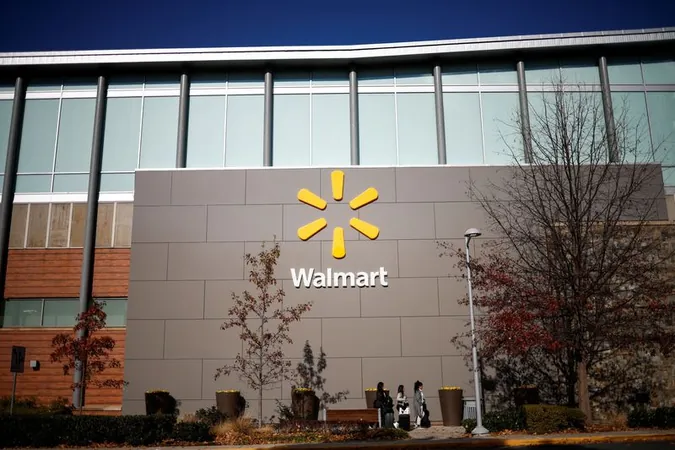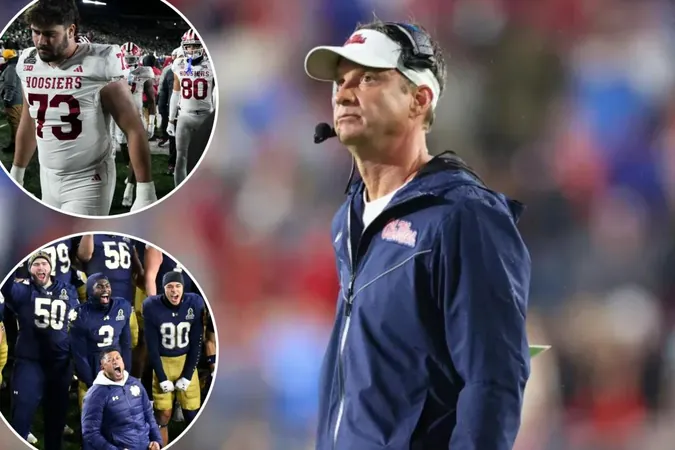
Major Legal Battle: US Government Takes On Walmart and Branch Messenger Over 'Junk Fees' for Delivery Drivers!
2024-12-23
Author: Ying
Introduction
In a groundbreaking move, the U.S. Consumer Financial Protection Bureau (CFPB) has filed a lawsuit against retail giant Walmart and the workforce payments company Branch Messenger, alleging that over one million delivery drivers have been coerced into using accounts that have cost them more than $10 million in questionable fees. This significant lawsuit could reshape the landscape for gig economy workers and the companies that employ them.
Allegations Against Walmart and Branch Messenger
According to the CFPB, Walmart allegedly pressured drivers from its Spark Driver program, known for 'last-mile' deliveries, to open Branch accounts without their consent. In fact, drivers were reportedly told that failure to comply would result in termination from their positions. “Companies cannot force workers into getting paid through accounts that drain their earnings with junk fees,” stated CFPB Director Rohit Chopra, emphasizing the agency's commitment to protecting the rights of workers.
Response from Walmart and Branch Messenger
In response to these serious allegations, both Walmart and Branch Messenger firmly denied any wrongdoing. Walmart issued a statement, claiming that the CFPB had rushed to file the lawsuit without allowing them adequate time to respond or explain their position, asserting they will “vigorously defend” their practices in court.
The Bigger Picture: Regulatory Trends
The lawsuit is part of a larger trend under the Biden administration, which has seen the CFPB intensifying its regulatory measures. Just days prior, the agency announced a similar legal action against major banks including JPMorgan Chase, Bank of America, and Wells Fargo, over their handling of Zelle, a popular payment platform.
Goals of the CFPB
The CFPB aims not only to stop the purported harmful conduct but also to recover lost funds for affected delivery drivers and impose fines that would contribute to the CFPB's victim relief fund. The lawsuit highlights that many drivers were misled about receiving immediate access to their earnings, only to encounter delays and additional fees when attempting to transfer their funds. Furthermore, it alleges that Branch misrepresented the drivers' ability to halt payments or make specific transfers, adding to the confusion and financial burden.
Implications for Gig Economy Workers
As this legal drama unfolds, it raises essential questions about the treatment of workers in the gig economy and the accountability of major corporations in their payment practices. The outcome of this case could lead to substantial changes in how gig workers are compensated and protected, making it a pivotal moment for thousands of drivers across the nation.
Conclusion
Stay tuned—this story is evolving fast, and its implications could be far-reaching for the future of gig economy workers!






 Brasil (PT)
Brasil (PT)
 Canada (EN)
Canada (EN)
 Chile (ES)
Chile (ES)
 España (ES)
España (ES)
 France (FR)
France (FR)
 Hong Kong (EN)
Hong Kong (EN)
 Italia (IT)
Italia (IT)
 日本 (JA)
日本 (JA)
 Magyarország (HU)
Magyarország (HU)
 Norge (NO)
Norge (NO)
 Polska (PL)
Polska (PL)
 Schweiz (DE)
Schweiz (DE)
 Singapore (EN)
Singapore (EN)
 Sverige (SV)
Sverige (SV)
 Suomi (FI)
Suomi (FI)
 Türkiye (TR)
Türkiye (TR)